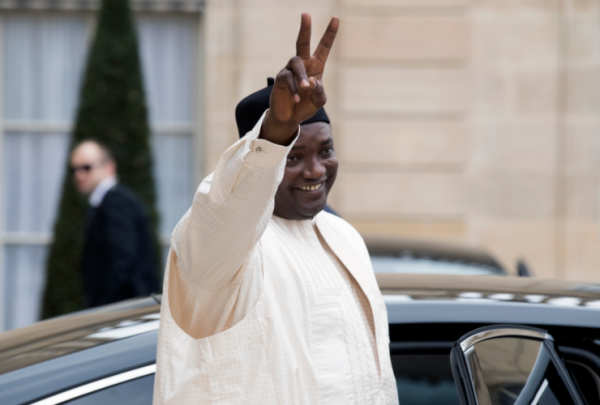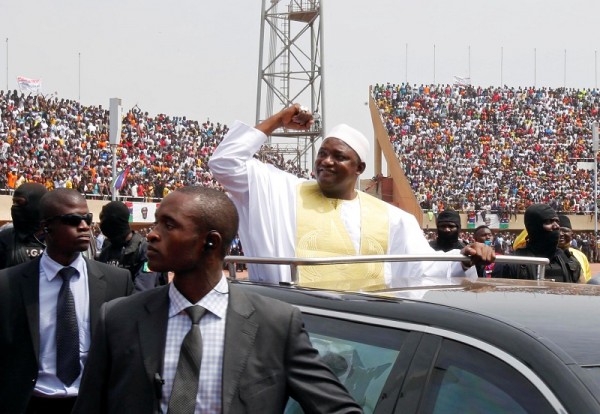The trial of seven Gambian journalists, who were arrested on charges of seditious publication on June 15, began today at a High Court in Banjul. According to the Media Foundation for West Africa, the journalists, who were originally slated to appear in court on July 7, were informed two days ago that their trial would now begin today.
The seven journalists, Emil Touray, Sarata Jabbi-Dibba and Pa Modou Fall of the Gambia Press Union, Pap Saine and Ebrima Sawaneh of The Point, and Sam Sarr and Abubakar Saidykhan of the newspaper Forayaa, were arrested following the publication of a GPU statement criticising Gambian President Yahya Jammeh for comments he made about another journalist, Deyda Hydara. Hydara, co-founder of The Point, was murdered in 2004.
The Point deputy editor Abba Gibba and journalist Augustine Kanjia, as well as Foroyaa publisher Halifa Sallah, were also detained in connection with the statement and later released. Further, National Intelligence Agency (NIA) forces reportedly entered The Point’s printing office on 19 June and temporarily halted publication.
“The arrest and trial of these journalists is further proof of the worsening state of press freedom in the country,” said David Dadge, director of IPI. “These journalists are being unfairly prosecuted for their legitimate criticism of the president’s comments. The president must accept learn to accept this criticism as part of the democratic political process and resist the temptation to use the organs of the state to punish journalists who have a fundamental right to freely express themselves.”
The International Press Institute calls on the President of Nigeria, Umaru Musa Yar’ Adua in his capacity as the Chairman of the Authority of Heads of State of ECOWAS, to address the harassment of journalists in Gambia. The ECOWAS Community Court of Justice on 30 June overruled preliminary objections brought by the Gambian government in the torture case filed by the Media Foundation for West Africa (MFWA) on behalf of Musa Saidykhan against the National Intelligence Agency (NIA).
Mr. Saidykhan, who is the editor-in-chief of the banned newspaper The Independent, was detained by NIA forces and the police in March 2006 and held incommunicado for 22 days, during which time he faced continual torture that has left his body permanently scarred.
The court ruled that Saidykhan is a citizen of West Africa, and that it is permitted to hear cases involving human rights violations even if local remedies have not been exhausted.
MFWA officer Mohammed Shardow told IPI, “We strongly doubt whether the Gambian government will respect the court’s decision. But now they must recognize the court’s jurisdiction over human rights cases.” He added: “Gambian authorities have no respect for the rule of law.”
The ECOWAS court had previously ruled on the case of another Gambian journalist, Chief Ebrima Manneh, who was arrested in July 2006 and has been “missing” since then. However, despite the court ordering the Gambian government to release him and to compensate him for his arrest, no action has been taken to comply with this order.
“If the Gambian government continues to disregard the rulings of the ECOWAS Community Court and harass journalists, the Authority of the Heads of State of ECOWAS must hold Gambia to the provisions of the ECOWAS treaty,” said Dadge.
The ECOWAS treaty allows for economic sanctions and expulsion, among other penalties, for non-compliance with the terms of the treaty by member countries.


